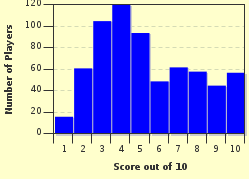Quiz Answer Key and Fun Facts
1. What long time reigning leader of Britain disliked children but eventually gave birth to nine of them?
2. After serving his people for over 30 years, Mao Zedong is considered one of the most controversial figures to ever rule a country. His methods were often seen as inhumane, but yet strategic. One such strategy was to turn the agricultural sector of mainland China into a booming industrialized communist society. What was this period in China's history known as?
3. Long regimes are not confined to monarchies and dictatorships; modern Western democracies can have them too. Which Canadian province had only one change of ruling party between 1935 and the end of the twentieth century (and well into the twenty-first)?
4. By the time he died at 87 years old. he had become the longest-ruling leader of his country. He stood only 5' 5" tall and was interested in Marine Biology. Who was this leader, who ruled his country for over 60 years?
5. It's easy to think that an unusually long reign should correspond to an unusually stable time, but this is not always the case. Pepi II Neferkare, a Sixth Dynasty Egyptian pharaoh, is said to have ruled for an incredible 94 years -- but the length of his reign may have contributed to the downfall of the Old Kingdom. Which of these problems characterized his reign?
6. He was the longest running monarch of Judea - 55 years (est. 697BC-642BC). No king of Israel reigned longer either. He went astray from his father's good ways, allowing paganism in the Temple. He is said to have repented after being taken captive by the Assyrians. Who was he?
7. Sometimes, countries are ruled in fact by someone who does not have the title. Such a power behind the throne was this lady, who was first a royal concubine, then came to be the power behind the thrones of her son and her nephew. Who was this lady, known as the West Dowager Empress?
8. The longest reigning monarch in European history was King Louis XIV of France, who occupied the throne for 72 years from 1643 to 1715. He was succeeded by Louis XV. What was Louis XV's relationship to his predecessor?
9. Teodoro Obiang has been president of Equatorial Guinea since August 1979 when he deposed Francisco Macias in a coup d'etat. In 2004, Obiang became the target of a coup himself when he announced that a group of foreign nationals were conspiring to overthrow him. Which son of a former foreign political leader was arrested in connection with this coup?
10. The Mutiny on the Bounty, as you may know, was led by Fletcher Christian against Captain William Bligh. The survivors settled on tiny Pitcairn Island in the South Pacific and set up a tiny micronation. Though Fletcher Christian was the first leader of this island nation, he died young. His son and grandson both turned out to be very influential leaders, one of which ran for mayor several different times. What unusual name did they share?
Source: Author
apathy100
This quiz was reviewed by FunTrivia editor
trident before going online.
Any errors found in FunTrivia content are routinely corrected through our feedback system.

